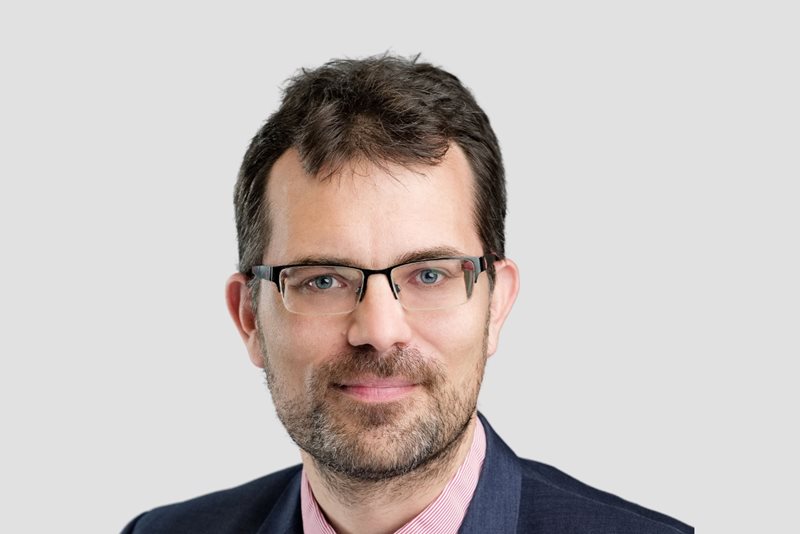Nine New Professorship Appointments at Corvinus

In its September 2024 resolution, the Hungarian Accreditation Committee (MAB) endorsed the appointments previously approved by the university’s Senate. Subsequently, the decree of the President of the Republic regarding the appointment of university professors was published in Magyar Közlöny (Hungarian Gazette) on March 13, 2025.
Below, we briefly present the academic careers of the newly appointed professors.
Ádám Balázs Csapó (Institute of Data Analytics and Information System /Corvinus Institute for Advanced Studies)
Ádám Balázs Csapó earned his MSc degree in engineering informatics from the Budapest University of Technology and Economics. In 2014, he obtained his PhD in the field of computer science at the same institution. As a visiting researcher, he conducted studies in Trondheim (Norwegian University of Science and Technology) in 2008 and in Tokyo (The University of Tokyo) between 2008 and 2010. Upon returning to Hungary, he worked as a research assistant at the Institute for Computer Science and Control, Hungarian Academy of Sciences (MTA SZTAKI) for six years (2010–2016). Since 2023, he has been an associate professor at Corvinus University of Budapest.
His primary research area is cognitive infocommunications (CogInfoCom), focusing on modeling human cognitive abilities and synthesizing new cognitive capabilities in information systems—particularly in three-dimensional and multimodal information spaces.

Barbara Dömötör (Institute of Finance)
Barbara Dömötör earned her degree in 1998 from the university’s predecessor, the Budapest University of Economic Sciences, and subsequently worked in the Treasury departments of several commercial banks. She obtained her PhD in 2014 from the Corvinus University Doctoral School of Business and Management. She joined the Department of Investments and Corporate Finance as a research assistant in 2009, became an assistant professor in 2015, and has been an associate professor since 2018. She completed her habilitation in 2020. Since 2020, she has been the program leader of the Finance and Accounting Bachelor programme, overseeing its curriculum renewal in 2021. In 2023, she took over the leadership of the Special Financial Mathematics Talent Program.
Since 2010, she has been one of the main organizers of the Annual Financial Markets Liquidity international conference. She has been a member of the Hungarian chapter of the Professional Risk Managers’ International Association since 2017, serving as co-director from 2019 and director since 2021. Her research focuses on financial risk management, financial markets, and infrastructure, with a particular emphasis on regulation. Currently, she is working on measuring climate risk and integrating it into risk management frameworks.

Szabina Eszter Fodor (Institute of Data Analytics and Information Systems)
Szabina Eszter Fodor earned her degrees in mathematics, physics, and computer science education, as well as in programming mathematics, from the Faculty of Science at Eötvös Loránd University (ELTE). She obtained her PhD in 2002 in the Informatics PhD program at ELTE’s Faculty of Science. In 2019, she completed her habilitation at Corvinus University of Budapest. She has been working at the Department of Computer Science at Corvinus University of Budapest since 1994, where she has been an associate professor since 2007 and head of the department since 2020. Between 2000 and 2004, she was a software developer at Tele Atlas North America in California. Since 2022, she has been the program director of the Business Data Analytics program. She has supervised two completed PhD students and is currently mentoring four active PhD candidates.
Her research focuses on the computational processing and analysis of large-scale databases using both traditional algorithmic and artificial intelligence-based methods. With these approaches, she has conducted research with significant predictive power in various fields, including business management, economics, education, mathematics, cartography, and biomedical sciences.

Gábor Harangozó (Institute of Sustainable Development)
Gábor Harangozó graduated as a certified economist from BKÁE/BCE (Budapest University of Economic Sciences and later Corvinus University of Budapest) in 2002. Since then, he has been working at Corvinus University (starting as a PhD student in 2002, an assistant lecturer from 2005, an assistant professor from 2009, and an associate professor since 2015). He earned his PhD in 2008 and completed his habilitation in 2017. In the 2011/2012 academic year, he taught and conducted research at Kwangwoon University in Seoul, South Korea. He also gained short-term international teaching experience at Wirtschaftsuniversität Wien and Nottingham Business School.
His research focuses on three main areas: corporate environmental and sustainability management, sustainable business models and their consumer acceptance, and environmental and sustainability indicators. Co-chair of the Sustainability Management Committee of the Hungarian Academy of Sciences IX., supervisory board member of KOVET Association for a Sustainable Economy.

Dániel Horn (Institute of Economics)
Dániel Horn began his career at the National Institute for Public Education in 2002. After gaining his master’s degree at the Budapest University of Economics he received his PhD from the Central European University in 2010. In 2007, he spent a year as a PhD researcher at the University of Mannheim’s Social Science Research Center (MZES). He returned to Hungary in 2008 to join the newly established Economics of Education research group at the Institute of Economics of the Hungarian Academy of Sciences (MTA), where he has been working ever since, now as a senior research fellow and the head of the group. Between September 2019 and March 2023, he served as the director of the institute. In the 2012–2013 academic year, he was a Max Weber postdoctoral fellow at the European University Institute in Florence. He was also a part-time faculty member at department of economics at ELTE Faculty of Social Sciences (ELTEcon) from 2010 until its closure in 2020. Since February 2020, he has been teaching at Corvinus University of Budapest, offering undergraduate courses as well as PhD courses at Corvinus and other international universities.
His research focuses primarily on the effectiveness and equity of education, with his key research question being: “What makes someone successful in school?” He has been an associate editor of the European Sociological Review between 2017-2024. He also served as the president of the Hungarian Economic Association in 2023-24. He is the chair of the National Statistical Council since 2023, and from 2025 September appointed as the co-director of the Rajk László College for Advanced Studies.

Melinda Jászberényi (Institute of Sustainable Development)
Melinda Jászberényi began her teaching career in 1985 as an assistant lecturer at the predecessor of Corvinus University, the Marx Károly University of Economics (MKKE). In 1992, she became an assistant professor, later advancing to associate professor, and she continues to work at Corvinus University of Budapest. She played a key role in the accreditation of the Tourism and Hospitality program and later became its head. She was instrumental in developing two specialized postgraduate programs: Tourism Development Manager and Cultural Tourism Manager, for which she remains the program director. In 2015, she founded the Tourism Training and Research Center, which she has been leading ever since. Since 2017, she has served as the editor-in-chief of Turizmus Bulletin, a professional and scientific journal. She obtained her habilitation in 2019 and has been the head of the Department of Tourism at the Institute of Sustainable Development since 2022.
She has contributed to the creation and renewal of numerous courses. Her work in curriculum development is extensive, and she is the author and editor of several academic books on tourism. She also serves as the editor of the Tourism and Mobility book series published by Akadémiai Kiadó. Her main research areas include cultural tourism and the interaction between transportation and tourism. Her textbook, Transportation, Mobility, Tourism, has become an integral part of the core curriculum for the Tourism and Hospitality undergraduate program at Corvinus University of Budapest.

Attila László Melegh (Institute of Social and Political Sciences)
Attila László Melegh graduated from Corvinus University’s predecessor, Marx Károly University of Economics (MKKE) in 1986. With a scholarship, he studied social history at Oxford for a year. Upon returning, he taught sociology and historical sociology courses at Corvinus and led the Széchenyi College from 1990. As a young researcher at the Hungarian Academy of Sciences (MTA), he worked at the Institute of Sociology on topics related to population and family history. He spent two years in the United States as a Fulbright scholar, teaching social history at Rutgers University. Later, he became a research fellow and then a senior research fellow at the Demographic Research Institute. He earned his PhD from the University of Debrecen in 2002.
He has been teaching at Corvinus University since 1998, completed his habilitation there in 2021, and was awarded the title of Doctor of the Hungarian Academy of Sciences (MTA) in 2023. His teaching has primarily focused on sociology and historical sociology. Initially, his research centered on social and demographic history, later expanding into international migration studies.

Áron Török (Institute of Sustainable Development)
Áron Török obtained his university degree, PhD, and habilitation at Corvinus University of Budapest. He pursued further studies in the Netherlands and Spain, and also spent a semester as a visiting researcher in Australia. At the university, he held positions as an assistant professor and associate professor in the Department of Agricultural Economics and its predecessors. He is currently the head of the Department of Agricultural Economics, the program leader for the Rural Development Agricultural Engineering undergraduate program, and the responsible leader for the Agrobusiness specialization in the Business and Management undergraduate program.
He has been actively involved in the creation and renewal of numerous courses. During his tenure as program leader and specialization coordinator, he contributed significantly to Corvinus University’s curriculum renewal program. As a visiting researcher, he was invited for a semester to one of Australia’s leading universities to deepen his research and collaborate with local colleagues. He is a member of the editorial board of the Gazdálkodás and the Open Agriculture journals.

Lilla Mária Vicsek (Institute of Social and Political Sciences)
Lilla Mária Vicsek obtained one of her degrees from Corvinus University of Budapest, where she also pursued her doctoral studies. She has been working at the university since the early 2000s, and since 2012, she has held the position of associate professor. In addition to her teaching responsibilities, she is the program leader for the Sociology BA program and of the Sociology doctoral program. She is also a e member of the Corvinus Artificial Intelligence Center.
Since 2008, her research has focused on the social aspects of technologies, since 2018 her research has centered on social phenomena related to artificial intelligence. She has led two OTKA project on the topic. Her current research topic involves visions related to artificial intelligence, with a particular focus on the labour market. In 2006, her book on focus group methods was published by Osiris Publishing House. Her writings on the subject have been taught at both domestic and international universities.
